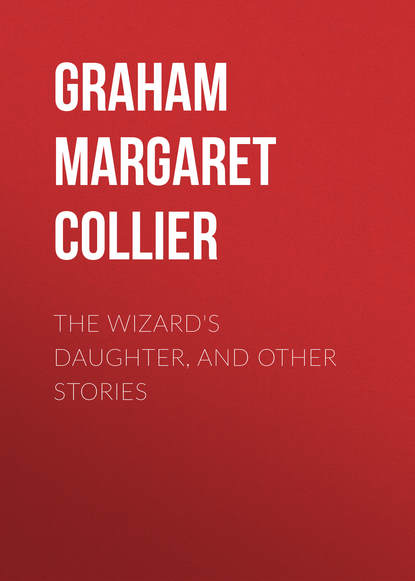По всем вопросам обращайтесь на: info@litportal.ru
(©) 2003-2025.
✖
The Wizard's Daughter, and Other Stories
Настройки чтения
Размер шрифта
Высота строк
Поля
"Erastus," she said gently, "will you split me a few sticks of kindling before you put away the team?"
Mrs. Burson was fitting a salad-green bodice on her elder daughter. That young woman's efforts to see her own spine, where her mother was distributing pins with solemn intentness, had dyed her face a somewhat unnatural red, but the hands that lay upon her downy arms were much whiter than those that hovered about her back. A dining-table, bearing the more permanent part of its outfit, was pushed into a corner of the room, and covered with a yellow mosquito-net, and from the kitchen came a sound of crockery accompanied by an occasional splash and a scraping of tin. Now and then the younger girl appeared in the doorway and gazed in a sort of worshipful ecstasy at her sister's splendor.
"Do you think you'll get it finished for the Fiesta, maw?" she asked, between deep breaths of admiration. Mrs. Burson nodded absently, exploring her bosom for another pin with her outspread palm.
Her husband came into the room, and seated himself on the edge of the rep lounge. His face had a strange pallor above the mask of his beard.
"You're home early, Erastus," she said; then she looked up. "Are you sick?" she asked with anxiety.
"Mr. Anthony is dead," Burson said huskily.
"Dead! Why, Erastus!"
Mrs. Burson held a pin suspended in the air and stared at her husband.
"Yes. He dropped dead in his chair. Or rather, he had some kind of a stroke, and never came to. It happened more than a week ago. I went in to-day, and Rufus told me."
Mrs. Burson returned the pin to her bosom, and motioned her daughter toward the bedroom door.
"Go and take it off, Millie," she said soberly. She was shamefacedly conscious of something different from the grief that stirred her husband, something more sordid and personal.
"It hurt me all over," Burson went on, "the way some of them talked in town. They looked queer at me when I said what I did about him. I don't understand it."
"I guess there's a good many things you don't understand, Erastus," ventured the wife quietly.
A carriage stopped at the gate, and a young woman alighted from it, and came up the walk. Erastus saw her first, and met her in the open doorway. She looked at him with eager intentness.
"Is this Mr. Burson?" she asked gently. "I am Mr. Anthony's daughter."
Mrs. Burson got up, holding the scraps of green silk in her apron, and offered the visitor a seat. Erastus held out his hand, and tried to speak. The two faced each other in tearful silence.
"I wanted to bring you this myself," the girl faltered, "because – because of what is written on the outside." She held a package of papers toward him. "I have heard him speak of you, I think. Any friend of my father must be a good man. We want to thank you, my mother and I" —
"To thank me?" Erastus questioned, "to thank me! You certainly don't know" —
"I know you were my father's friend," the girl interrupted; "I don't care about the rest. Possibly I couldn't understand it. I know very little about business, but I knew my father."
She got up, holding her head high in grief-stricken pride, and gave her hand to her host and hostess.
The younger Burson girl emerged from the kitchen, a dish-towel and a half-wiped plate clasped to her breast, and watched the visitor as she went down the path.
"Her silk waist doesn't begin to touch Millie's for style," she said pensively, "and her skirt doesn't even drag; but there's something about her."
"Yes," acquiesced Mrs. Burson, "there is something about her."
Erastus sat on the edge of the old rep lounge, looking absently at the papers.
"In the event of my death, to be delivered to my friend Erastus Burson," was written on the package.
His wife came and stood over him.
"I don't know just what it means, mother," he said, "there's a deed, and my note marked 'Paid,' and a lot of two-bit and four-bit pieces. I'll have to get somebody to explain it."
He sat quite still until the woman laid her large hand on his bowed head. Then he looked up, with moist, winking eyes.
"I don't feel right about it, mother," he said. "I wish now I'd 'a' dropped in oftener, and been more sociable. It's a strange thing to say, but I think sometimes he was lonesome; and I'm sure I don't know why, for a kinder, genialer man I never met."






